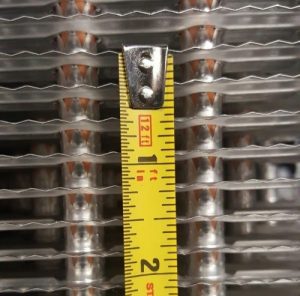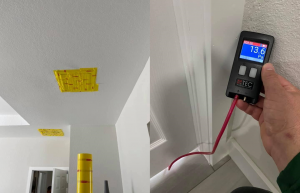Tech Tips

Jacques Charles was a French physicist (and a real looker based on that photo) born in 1746. Little is known about his educational and family background, but he began his career as a clerk at the Ministry of Finance in Paris. After a short time as a financial clerk, he began focusing on science. The […]
Read more

Why Defrost? Let's start with the basics and move on from there. Defrost is necessary when the coil temperature drops below 32°F. Defrost can be as simple as turning the compressor off for a period of time or as elaborate as reversing the flow of refrigerant for the whole system or just parts of the […]
Read more

DISCLAIMER: HVAC School is NOT an official OSHA safety training resource! Although we provide safety tips in good faith, our website is not a substitute for safety training from an authorized OSHA training source. Locking out and tagging equipment is one of the most basic safety procedures in general industry and maintenance work, especially in […]
Read more

Refrigerant migration is a natural process that occurs during the off-cycle. The refrigerants have an affinity for oil and seek out the lowest-pressure areas, so it only makes sense that some refrigerant would be drawn to the compressor crankcase and may condense there. When the refrigerants condense, they saturate the oil. As a result, refrigerant […]
Read more

This article was submitted by Genry Garcia of Comfort Dynamics, Inc. It is the first part of his series on zonal pressure diagnostics. Thanks, Genry! Zonal pressure diagnostics have been around for a while. Here is a brief description of ZPD from the website redcalc.com: Formerly known as the “Blasnik methods” in a nod to […]
Read more

“Robert Boyle” by Stifts- och landsbiblioteket i Skara is licensed under CC BY 2.0 Robert Boyle was an Anglo-Irish philosopher and scientist born in 1627. He had a privileged upbringing, as he was a son of the first earl of Cork, and his social standing gave him access to a first-class education at Eton College. […]
Read more

When someone says there is no such thing as “cold,” only the absence of heat, you can point out that while cold is the absence of heat… absolute zero is the definition of COLD. The third law of thermodynamics addresses the absence of heat and what that means for entropy. It implies that absolute zero […]
Read more

The second law of thermodynamics puts the first law into context and establishes entropy as a concept. We can simply define entropy as a state of disorder that can only increase or remain the same in natural processes. Processes in which entropy remains the same are reversible, but ones that result in an entropy […]
Read more

The first law of thermodynamics is an extension of the law of energy conservation. The latter states that energy can be neither created nor destroyed but converts from one form to another. Thermodynamics is the study of heat’s relationship with mechanical work, and it establishes heat as a form of energy that can be neither […]
Read more







